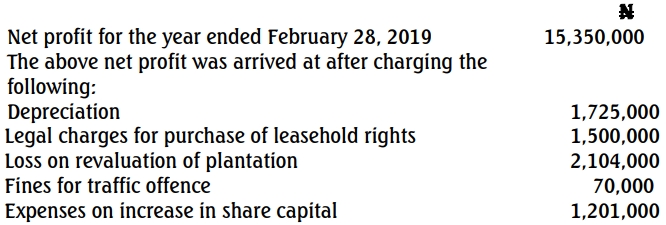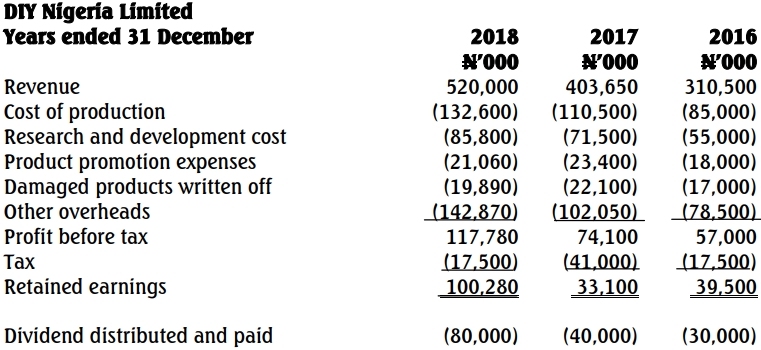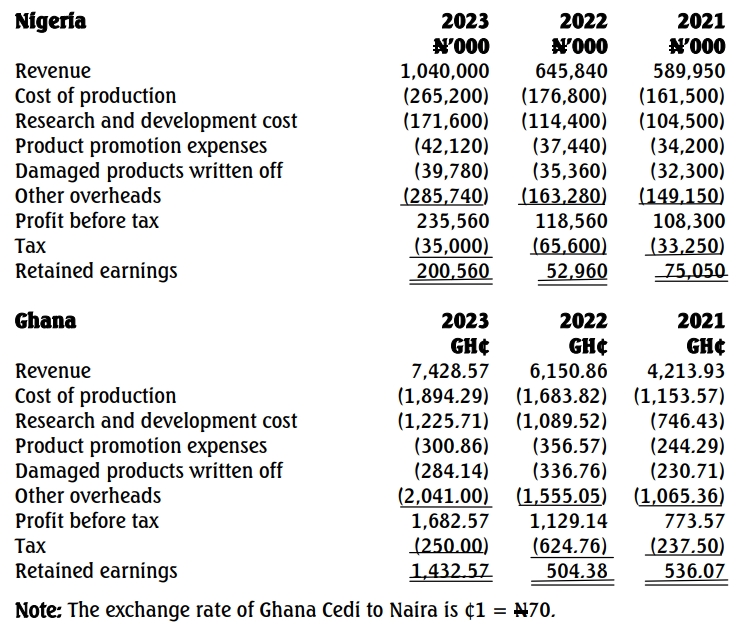DD Nigeria Limited, a private limited liability company, was incorporated in March 2010. The company produces highly successful spring water. The Board of Directors of the company comprises a non-executive Chairman, his wife as the Managing Director, and the Chairman’s childhood friend. For the day-to-day running of the business, the Managing Director is being assisted by the Production Manager, Sales/Marketing Manager, Administrative Officer, and Accounting Officer (a diploma graduate).
The company has a track record of steady growth in profitability and market share. In a bid to cut down its cost of raw materials, particularly polythene, the Board at its recent meeting decided to acquire a polythene company in the neighborhood that is witnessing dwindling fortunes due to insufficient funds to finance its working capital. The Board has also lost confidence in the Accounting Officer as his poor knowledge in tax-related matters was brought to the fore during a recent visit to the company by officials of the Federal Inland Revenue Service.
The Managing Director has approached your firm of tax consultants to help provide professional advice on tax matters in respect of some transactions and activities that occurred in the last one year.
Records of the following transactions were made available to you:
(i) The company purchased plant and machinery at a cost of ₦5,000,000 on April 1, 2019. Plant was later disposed on September 15, 2019, for ₦3,500,000. The undisposed machinery was valued at ₦4,300,000. Incidental expenses incurred on disposal were ₦250,000.
(ii) The company sold an acre of land, which was acquired on May 22, 2018, at a cost of ₦6,750,000 for ₦12,500,000 on October 19, 2018. In the following month, the company bought another land, which was to be used for the purpose of the business, for ₦15,000,000 to replace the one sold. It was, however, subsequently disposed of for ₦18,000,000 in June 2019.
(iii) Part of the industrial building (where the production unit is located) was damaged in October 2020 during a protest by some youths in the area. The company, in November 2020, received ₦2,200,000 as compensation under a policy of insurance. The company has the intention of utilizing the fund for the acquisition of another building.
Required:
As the tax consultants to DD Nigeria Limited, draft a report to the Managing Director of the company explaining and providing computations (where necessary) on the:
a. Capital gains tax liability for the relevant tax year in respect to transaction (i). (5 Marks)
b. Relief available (if any) and tax liability due in respect to transaction (ii). (9 Marks)
c. Tax implications on the compensation under the policy of insurance received on the damaged industrial building. (2 Marks)
d. Treatment of gains arising from business reorganization in line with the provision of Section 49, Finance Act 2019, which amended Section 32, Capital Gains Tax Act Cap C1 LFN 2014. (4 Marks)




